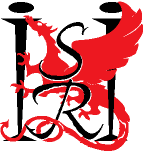
Institute for Software Research International
School of Computer Science, Carnegie Mellon University
The eSourcing Capability Model for Service Providers
(eSCM-SP) v2
1: Model Overview
Elaine B. Hyer, Keith M. Heston, Mark C. Paulk
May 2004
Organizations are increasingly delegating their information technology
(IT) intensive business activities to external service providers to
take advantage of the rapid evolution of the global telecommunications
infrastructure. The business processes being outsourced range from
routine and non-critical tasks, which are resource intensive and
operational, to strategic processes that directly impact revenues.
Managing and meeting client expectations is a major challenge in
sourcing of IT-enabled services, and examples of failure abound.
The eSourcing Capability Model for Service Providers (eSCM-SP) is a
"best practices" capability model with three purposes: (1) to give
service providers guidance that will help them improve their capability
across the sourcing life-cycle, (2) to provide clients with an
objective means of evaluating the capability of service providers,
and (3) to offer service providers a standard to use when differentiating
themselves from competitors. The eSCM-SP was developed by a consortium
led by Carnegie Mellon University's Information Technology Services
Qualification Center (ITsqc). In November 2001 the eSCM v1.0 was
released. After significant evaluation and revision, the eSCM for
Service Providers (eSCM-SP) v1.1 was released in October 2002. The
current version, the eSCM-SP v2, is composed of 84 Practices that
address the critical capabilities needed by IT-enabled service providers.
This document provides valuable information about the eSCM-SP, its
implementation, and methods to evaluate and certify service providers.
110 pages
Return to:
SCS Technical Report Collection This page maintained by reports@cs.cmu.edu
School of Computer Science homepage